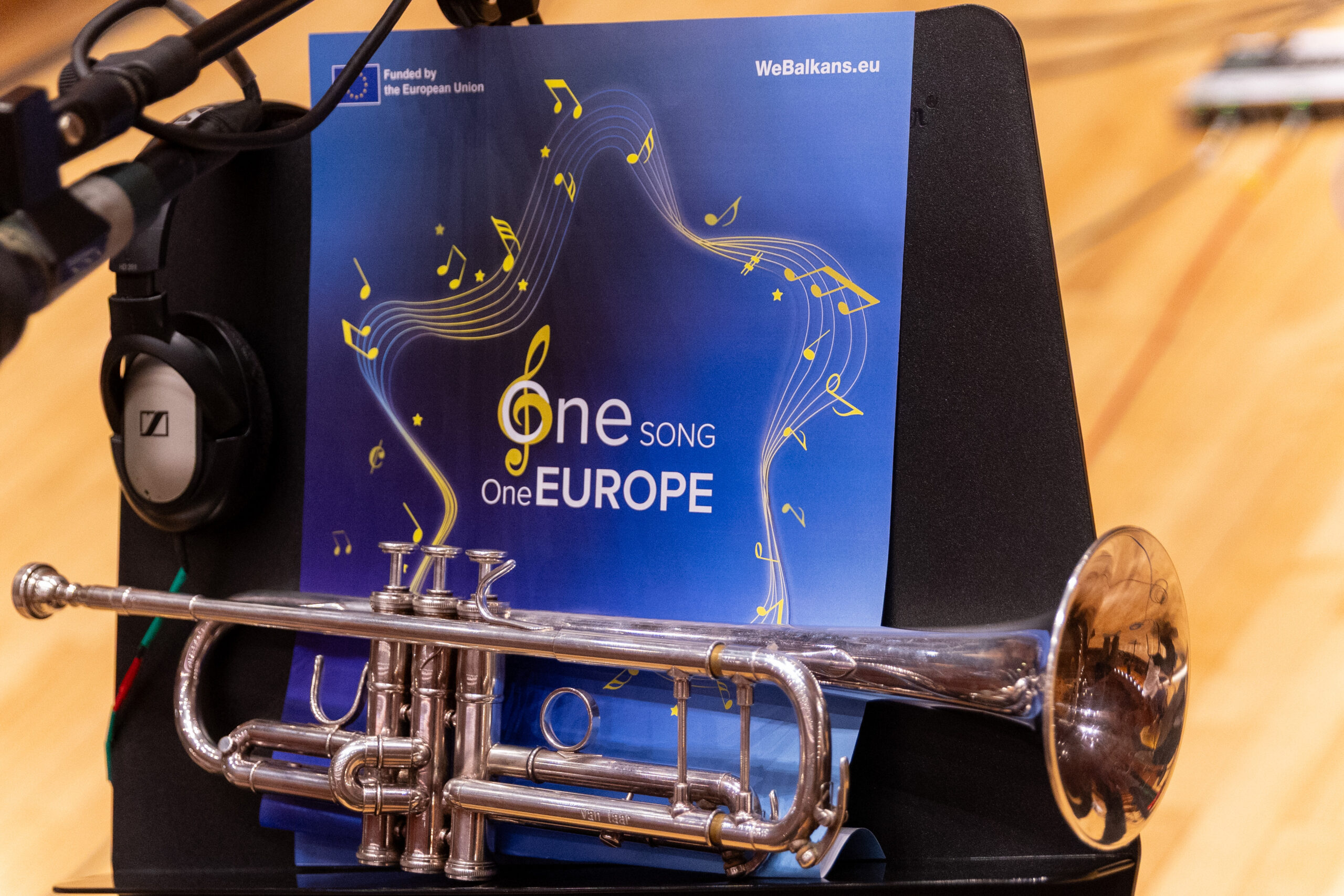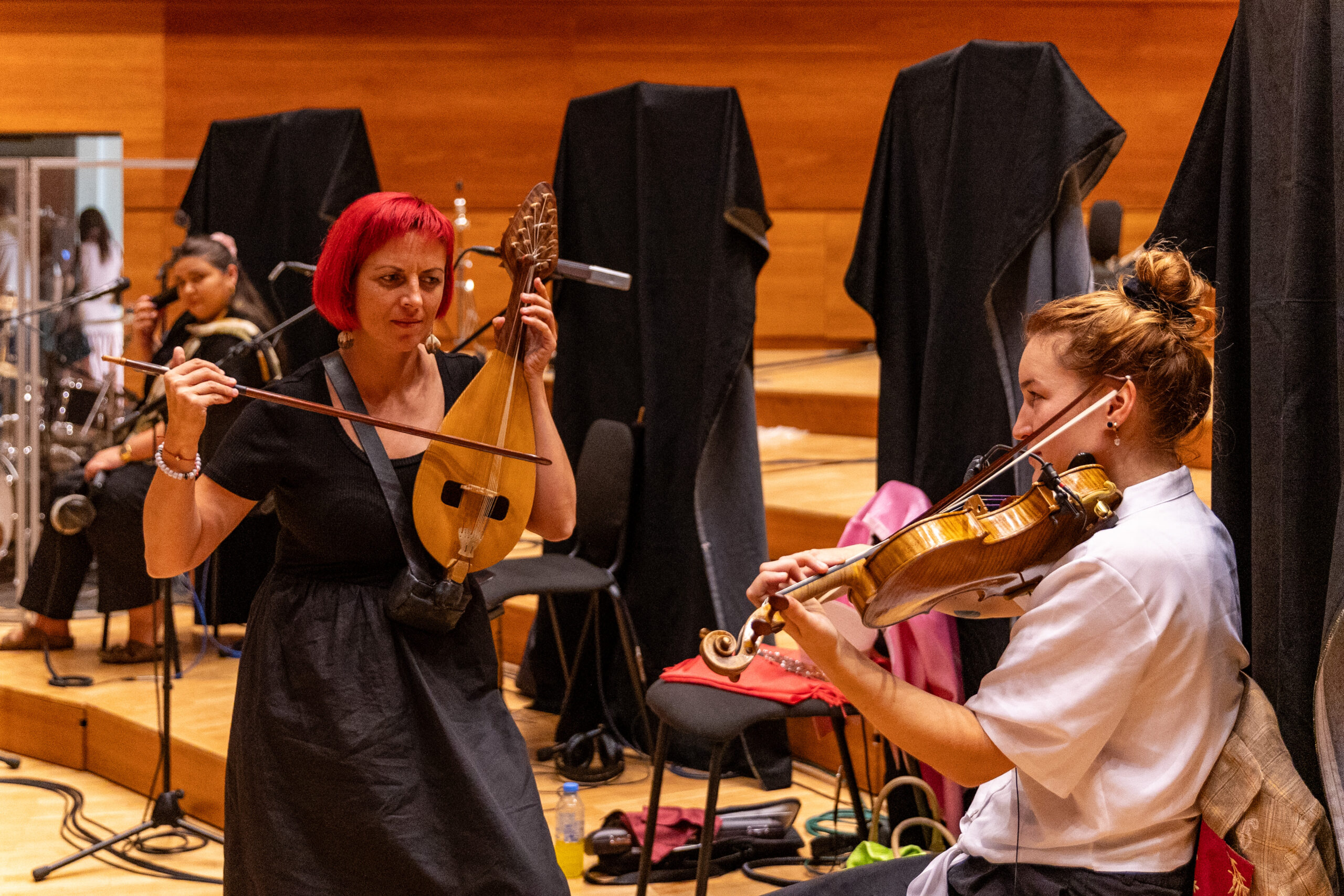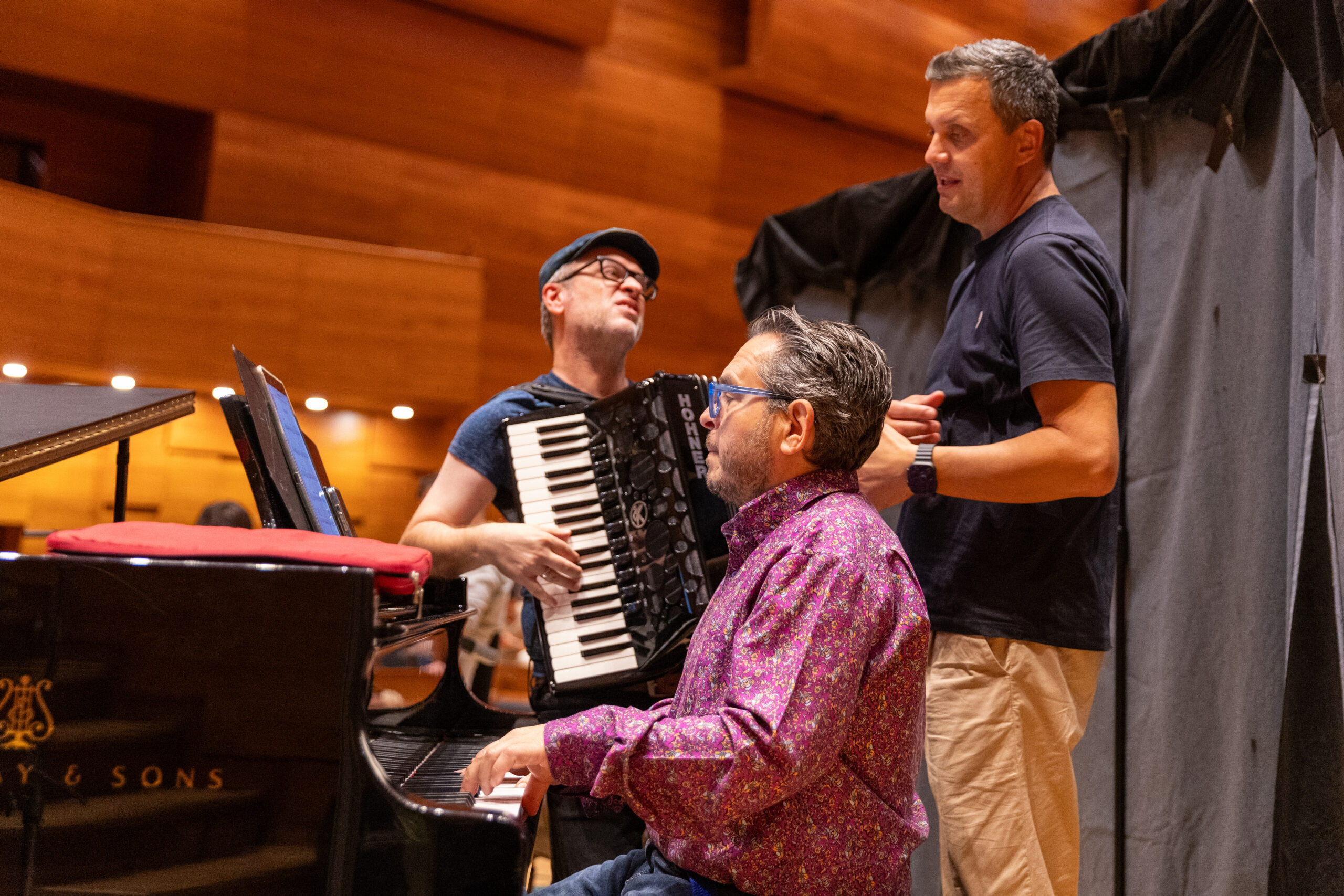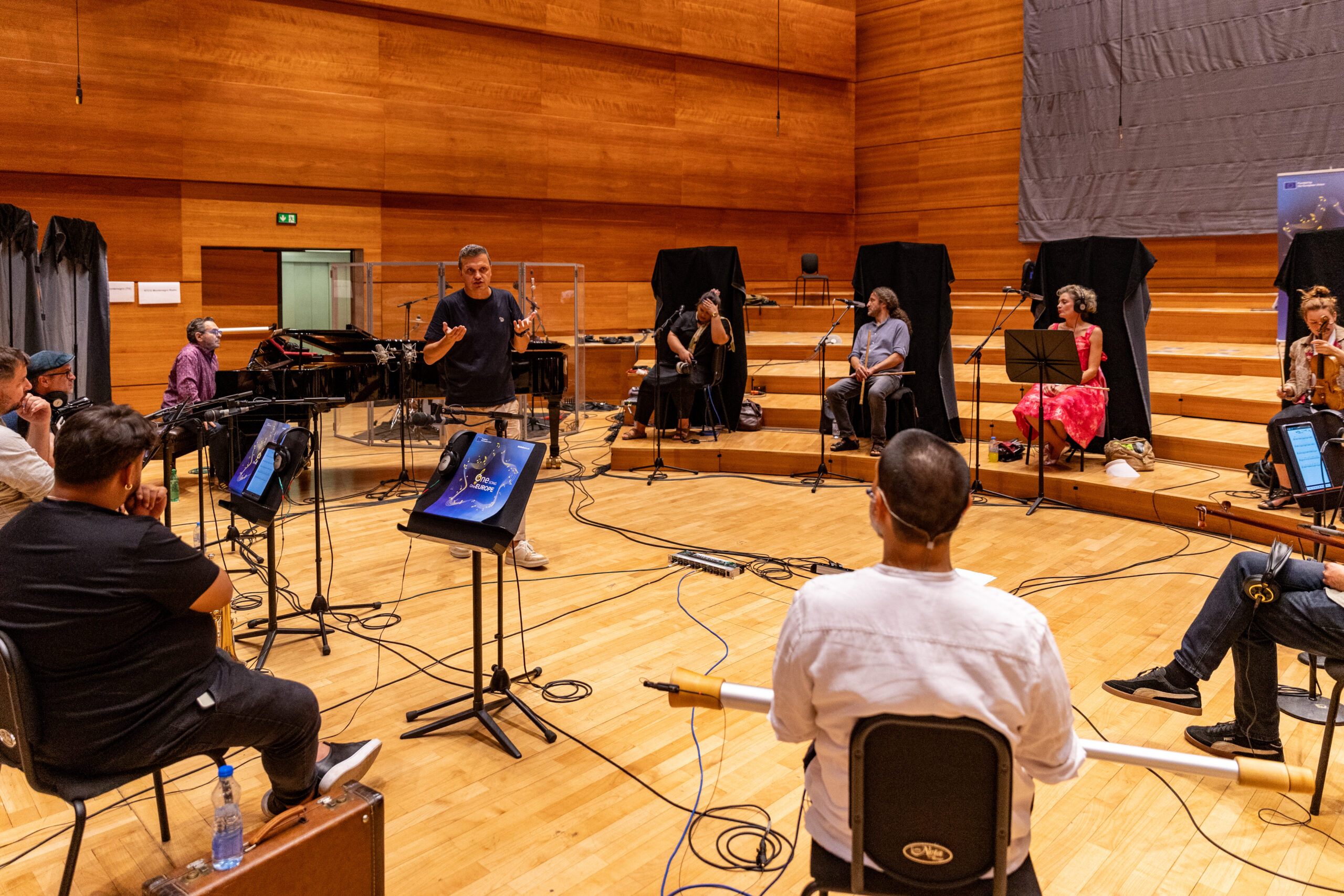
Our shared cultural heritage remains the most powerful uniting force in a world that so often seems determined to divide us. In a world marked by conflict and division, people are searching for something that can hold them together, a reason to believe in peace, harmony and the possibility of a normal life. “The world has gone mad,” many will say, but beneath that lament lies a cry for help, a yearning for connection. Can we find a force strong enough to unite us?
“When you, joy, mighty force, bring us together, all discord must vanish. Every man becomes a brother to another when he follows your radiant path,” reads a verse from Ode to Joy. Written in 1785 by German poet Friedrich Schiller, the poem celebrates the timeless ideals of brotherhood and human unity. Decades later, Ludwig van Beethoven immortalised it in his Ninth Symphony, premiered in 1824. In 1972 it was adopted as the anthem of the Council of Europe, and later as the anthem of the European Union.
This universal hymn of unity was brought to life once more in an outstanding performance, as twelve top musicians from across Europe came together to perform it—playing instruments that ranged from classical, rare to modern. As part of the One Song – One Europe initiative, their performance, conveyed a powerful message: Europe and the European Union stand as enduring symbols of unity and harmony.
By bringing together creators from both EU Member States and the Western Balkans, the initiative showed that culture is the heartbeat that binds Europe together. It is an unbreakable thread—one of the EU’s greatest strengths.
“It is surreal how this Ode sounds in such a completely new rendition – incredible that a composition can carry such power when played on these rare and ancient instruments, seemingly worlds apart from Beethoven, yet brought together by musicians from both the EU and beyond. And that is exactly how it should be – we are all neighbours, sharing the same space”, said the journalist who followed the performance and recording.
The performers were: Gent Rushi from Albania (piano and accordion); Hristina Beleva from Bulgaria (gadulka); Petr Harmacek from the Czech Republic (trumpet); Delphine Aurélie Langhoff from France (drums); Marvin Dillmann from Germany (didgeridoo); Driton Bejta from Kosovo (guitar and çifteli); Žana Lekić from Montenegro (flute); Mike del Ferro from the Netherlands (piano); Sercuk Alimov from North Macedonia (trumpet); Miloš Nikolić from Serbia (kaval); Antonija Batinić from Bosnia and Herzegovina (vocals); and Ana Mezgec from Slovenia (violin and vocals).

All of them are artists with established careers in jazz, rock, folklore and other genres, mastering multiple instruments and recognised not only in their own countries but across Europe and beyond. Among the most unusual instruments were the gadulka, didgeridoo, çifteli and kaval.
The gadulka is a traditional Bulgarian bowed string instrument, central to Bulgarian folk ensembles, typically played for dance music. It is held upright and bowed from underneath. The didgeridoo, originating in northern Australia, has been present in Europe since the 1980s. Many European countries now have active didgeridoo communities, workshops, festivals and ensembles – particularly in Germany and France. The çifteli is a two-stringed instrument from northern and central Albania, southern Montenegro, and parts of North Macedonia and Kosovo, often played at weddings, concerts and as accompaniment to Albanian epics and ballads. The kaval is a chromatic shepherd’s flute played in the mountainous regions of the Balkans (Albania, Romania, Bulgaria, southern Serbia, Kosovo, North Macedonia, northern Greece) and Anatolia (Turkey, Armenia).

“I’m excited to be part of the One Song – One Europe project. I’m very glad that the whole of Europe can enjoy the sound of my instrument”, said Marvin Dillmann from Germany. Žana Lekić from Montenegro shared a message on behalf of the Western Balkans: “We from the Western Balkans are also part of Europe, despite our differences, and we wish to send a message of togetherness, love and happiness – which Ode to Joy embodies”.
“Music always connects us, without borders and without words. Every time I perform across Europe I feel there is a connection and understanding, as though we are speaking the same language. This is how we build a strong and united Europe – one that allows us to be unique, yet still one. One Song – One Europe”, said Antonija Batinić.
French drummer Delphine Aurélie Langhoff emphasised: “We in Europe are one. It is a great joy to perform this masterpiece with such wonderful musicians from different countries”. On the other hand, Serbian musician Miloš Nikolić drew a parallel between notes and people: “Just as music exists only through different notes working together, so too do people, connected across all our differences, work best together”.

Ana Mezgec from Slovenia said it was a great honour to be part of the project: “I believe that collaborations like this performance of Ode to Joy have the power not only to unite us musicians from different countries, but also to cross borders and connect people through music – the most powerful medium we can offer”.
For Sercuk Alimov from North Macedonia it was “immense happiness to be part of One Song – One Europe”. His country Norht Macedonia hosted this wonderful performance. Mike del Ferro from Amsterdam rejoiced: “Music is an universal language that connects all people” and Bulgarian musician Hristina Beleva added: “The twelve of us performed Ode to Joy in a single language – the language of music”
As the largest political and economic partner of the Western Balkans, the European Union fosters collaboration among musicians and creators from the EU and the region by supporting artists, cultural cooperation, and creative exchange. This enables them to work together, share knowledge and experiences, and inspire one another. This performance was the highlight of the One Song – One Europe project and will be permanently preserved across social media, local media, and on the website webalkans.eu.
By bringing together creators from both EU Member States and the Western Balkans, the initiative showed that culture is the heartbeat that binds Europe together. It is an unbreakable thread—one of the EU’s greatest strengths.
“It is surreal how this Ode sounds in such a completely new rendition – incredible that a composition can carry such power when played on these rare and ancient instruments, seemingly worlds apart from Beethoven, yet brought together by musicians from both the EU and beyond. And that is exactly how it should be – we are all neighbours, sharing the same space”, said the journalist who followed the performance and recording.
The performers were: Gent Rushi from Albania (piano and accordion); Hristina Beleva from Bulgaria (gadulka); Petr Harmacek from the Czech Republic (trumpet); Delphine Aurélie Langhoff from France (drums); Marvin Dillmann from Germany (didgeridoo); Driton Bejta from Kosovo (guitar and çifteli); Žana Lekić from Montenegro (flute); Mike del Ferro from the Netherlands (piano); Sercuk Alimov from North Macedonia (trumpet); Miloš Nikolić from Serbia (kaval); Antonija Batinić from Bosnia and Herzegovina (vocals); and Ana Mezgec from Slovenia (violin and vocals).

All of them are artists with established careers in jazz, rock, folklore and other genres, mastering multiple instruments and recognised not only in their own countries but across Europe and beyond. Among the most unusual instruments were the gadulka, didgeridoo, çifteli and kaval.
The gadulka is a traditional Bulgarian bowed string instrument, central to Bulgarian folk ensembles, typically played for dance music. It is held upright and bowed from underneath. The didgeridoo, originating in northern Australia, has been present in Europe since the 1980s. Many European countries now have active didgeridoo communities, workshops, festivals and ensembles – particularly in Germany and France. The çifteli is a two-stringed instrument from northern and central Albania, southern Montenegro, and parts of North Macedonia and Kosovo, often played at weddings, concerts and as accompaniment to Albanian epics and ballads. The kaval is a chromatic shepherd’s flute played in the mountainous regions of the Balkans (Albania, Romania, Bulgaria, southern Serbia, Kosovo, North Macedonia, northern Greece) and Anatolia (Turkey, Armenia).

“I’m excited to be part of the One Song – One Europe project. I’m very glad that the whole of Europe can enjoy the sound of my instrument”, said Marvin Dillmann from Germany. Žana Lekić from Montenegro shared a message on behalf of the Western Balkans: “We from the Western Balkans are also part of Europe, despite our differences, and we wish to send a message of togetherness, love and happiness – which Ode to Joy embodies”.
“Music always connects us, without borders and without words. Every time I perform across Europe I feel there is a connection and understanding, as though we are speaking the same language. This is how we build a strong and united Europe – one that allows us to be unique, yet still one. One Song – One Europe”, said Antonija Batinić.
French drummer Delphine Aurélie Langhoff emphasised: “We in Europe are one. It is a great joy to perform this masterpiece with such wonderful musicians from different countries”. On the other hand, Serbian musician Miloš Nikolić drew a parallel between notes and people: “Just as music exists only through different notes working together, so too do people, connected across all our differences, work best together”.

Ana Mezgec from Slovenia said it was a great honour to be part of the project: “I believe that collaborations like this performance of Ode to Joy have the power not only to unite us musicians from different countries, but also to cross borders and connect people through music – the most powerful medium we can offer”.
For Sercuk Alimov from North Macedonia it was “immense happiness to be part of One Song – One Europe”. His country Norht Macedonia hosted this wonderful performance. Mike del Ferro from Amsterdam rejoiced: “Music is an universal language that connects all people” and Bulgarian musician Hristina Beleva added: “The twelve of us performed Ode to Joy in a single language – the language of music”
As the largest political and economic partner of the Western Balkans, the European Union fosters collaboration among musicians and creators from the EU and the region by supporting artists, cultural cooperation, and creative exchange. This enables them to work together, share knowledge and experiences, and inspire one another. This performance was the highlight of the One Song – One Europe project and will be permanently preserved across social media, local media, and on the website webalkans.eu.
Please wait while your video is being uploaded...
Don't close this window!